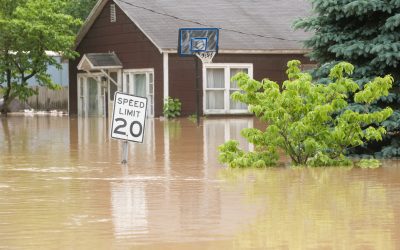What Type of Adjuster Is Ideal for Small Adjustments
When you’re dealing with a minor insurance claim—like a small roof leak, minor water damage, or a single-room repair—it’s natural to wonder whether hiring a claims adjuster is even necessary. So, what type of adjuster is ideal for small adjustments? The short answer: it depends on the complexity of the loss, your comfort with the claims process, and the potential payout at risk. This blog explains the different types of adjusters, when each is most appropriate, and how to make a smart, cost-effective decision for small-scale property claims.
Types of Insurance Adjusters Explained
Insurance adjusters are professionals who evaluate damage and determine the value of your insurance claim. There are three main types of adjusters, each with different roles and responsibilities.
1. Staff Adjuster
A staff adjuster is employed directly by your insurance company. They handle claims on the insurer’s behalf and work to settle cases in line with company guidelines.
Best for:
- Straightforward, low-value claims
- Policyholders who are confident in handling paperwork
- People who want to avoid hiring third-party help
Limitations: Staff adjusters may not always represent your best interests, as they are paid by the insurer to minimize claim costs.
2. Independent Adjuster
An independent adjuster works for a third-party company but is still hired by the insurance company to handle claims. They usually step in when workload spikes or specialized expertise is needed.
Best for:
- Small commercial claims
- Insurers needing help in high-claim areas
Limitations: Like staff adjusters, they prioritize the insurer’s goals, not the policyholder’s.
3. Public Adjuster
A public adjuster works for you—the policyholder—and represents your interests throughout the claim process. They assess the damage, estimate costs, prepare documentation, and negotiate with the insurance company.
Best for:
- Homeowners unfamiliar with the claims process
- Claims with coverage disputes
- Claims where payout is lower than expected
Source: NAIC – National Association of Insurance Commissioners
What Type of Adjuster Is Ideal for Small Adjustments?
When it comes to small-scale claims, many policyholders assume it’s easier and cheaper to work directly with their insurer’s staff adjuster. And while this might seem practical, there are situations where hiring a public adjuster makes sense—even for small adjustments.
Use a Staff Adjuster When:
- Damage is minimal and well-documented
- You clearly understand your coverage terms
- The insurance company responds promptly and fairly
Use a Public Adjuster When:
- The claim involves hidden or underestimated damage
- You’ve received a low settlement offer
- The insurer is delaying or denying valid coverage
- You need assistance understanding your policy
Even for smaller claims, hiring a public adjuster can help you maximize your settlement, ensure nothing is overlooked, and handle stressful paperwork and negotiation on your behalf. Most public adjusters charge a small percentage (usually 10%) of the final payout, which can be worth it—even on small claims—if it significantly increases the compensation.
Signs You Should Hire an Adjuster—Even for a Small Claim
Sometimes, what seems like a minor issue grows into a larger expense. Here’s how to tell whether it’s worth involving a professional:
- Your damage estimate and the insurer’s offer don’t match.
- There’s mold, structural damage, or risk of future issues.
- You’ve filed previous claims, and the insurer is hesitant.
- Your policy contains confusing or unclear terms.
- You’re overwhelmed and want expert guidance.
For example, a $4,000 ceiling leak claim might balloon if mold remediation is needed or if it reveals a faulty pipe system. A public adjuster can identify this early and build the right case.
Helpful Resource: Florida Department of Financial Services – Insurance Consumer Resources
FAQ: What Type of Adjuster Is Ideal for Small Adjustments
What is the difference between a staff and public adjuster?
Answer: A staff adjuster works for the insurance company, while a public adjuster works solely for you. Public adjusters aim to maximize your payout; staff adjusters aim to protect the insurer’s bottom line.
Are public adjusters worth it for small claims?
Answer: Yes, in cases where damage is underestimated, disputed, or when policy terms are unclear. They can help you get a fair settlement, even if the claim is minor.
How much does a public adjuster charge?
Answer: In Florida, public adjusters typically charge up to 10% of the claim amount. Some may charge less for small claims or offer flat-rate services.
Can I negotiate a small claim myself?
Answer: Yes, especially if it’s under $2,000 and clearly documented. However, hiring an adjuster provides expertise and avoids mistakes that could reduce your payout.
What should I do before hiring an adjuster?
Answer: Review your policy, get repair estimates, document all damage, and consider getting a free consultation from a licensed public adjuster.
Final Thoughts
So, what type of adjuster is ideal for small adjustments? The answer depends on your confidence in the process and the complexity of the damage. While staff adjusters are typically enough for low-risk claims, don’t hesitate to involve a public adjuster if the settlement seems too low, the damage has hidden components, or if the insurance company is difficult to work with. A small investment in expert help can lead to a significantly better outcome.
Need Help with an Insurance Claim in Florida?
If you’re dealing with a property damage claim—big or small—and want help from a professional who works for you, not the insurance company, explore Why is it important to choose a Licensed Claims Adjuster in Florida?. Our team will guide you through every step of the process and fight for the settlement you deserve.



